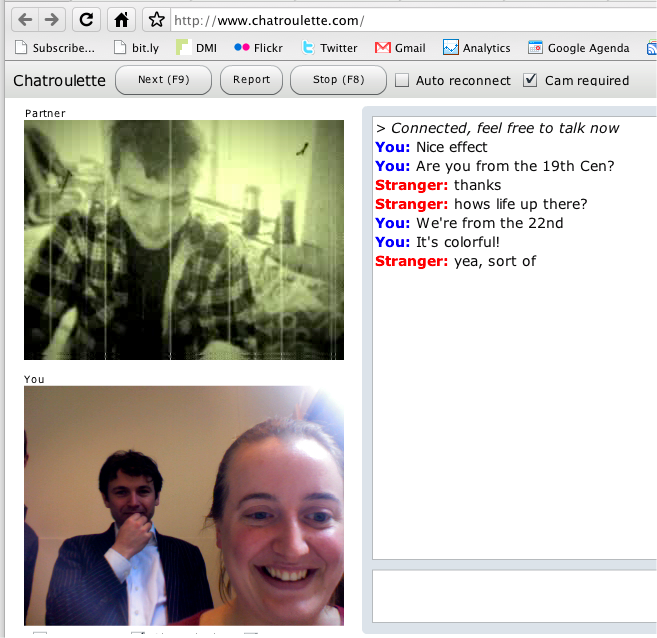The Web Ecology project published the first study (an initial survey) on the new web hype ChatRoulette where a user is randomly paired with another user for chatting. Randomness in the informational web can be found on Google with its “I’m feeling lucky” button, on StumbleUpon with its “Stumble!” button and on Blogger with its Next Blog link. Randomness in the social web is less common but may be seen in the practice of adding random contacts or ‘friends’ in order to gain more followers (which is often considered to be a marker of popularity).
One of the main research questions of “How does the structure of ChatRoulette shape general modes of participation and cultural practices on the platform?” led to an interesting conclusion:
The technical code of ChatRoulette plays a key role in influencing the culture fashioned on the platform. However, unlike other structure for community creation on the Web like Facebook or Twitter,ChatRoulette enforces social rules that depend on the inverse proportion between the temporal and the social: as more time is spent with one user, you encounter fewer other users. ChatRoulette prioritizes the one-on-one (or, group-on-group) relationship that other social networks bypass when they strive to collect larger and larger groups of friends, colleagues, followers, etc. (Alex Leavitt &Â Tim Hwang 2010)
The code of a platform restricts and allows for certain social interactions. At first sight, ChatRoulette seems to be a platform for random and short-lived communication with the popular next button. However, the underlying code of the ChatRoulette platform privileges longer communication with a single person. In contrast to social networking sites where status seems to be measured by the amount of friends, ChatRoulette prioritizes one-on-one relationships.
My first ChatRoulette session (with support from my colleagues in the background) was actually with a Dutch guy who read about ChatRoulette in the newspaper this morning:
chat roulette from Casey Neistat on Vimeo.

One thought on “ChatRoulette Analysis: Its platform code favors long-lasting one-on-one relations”